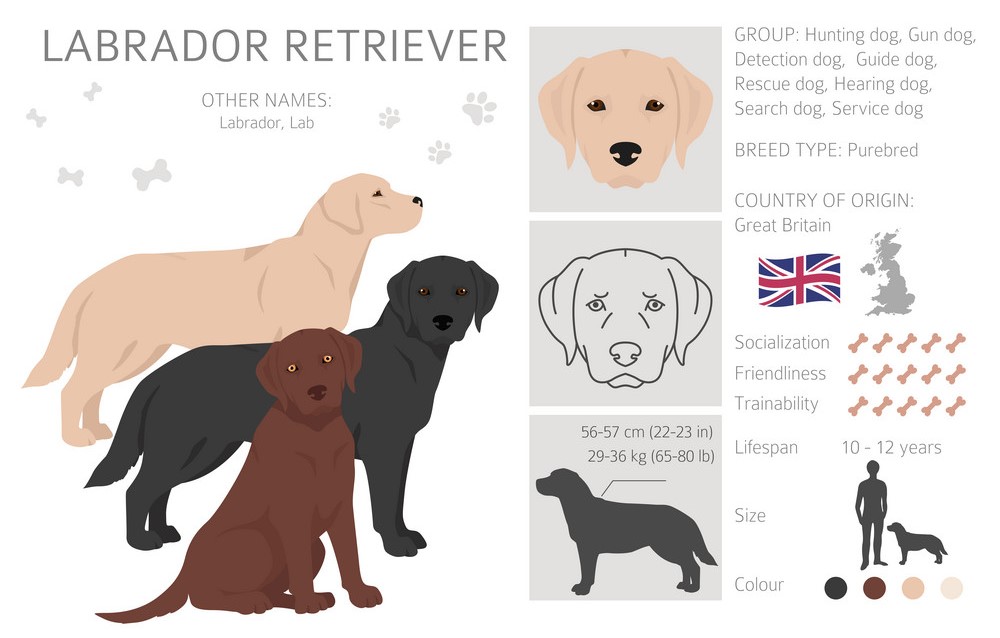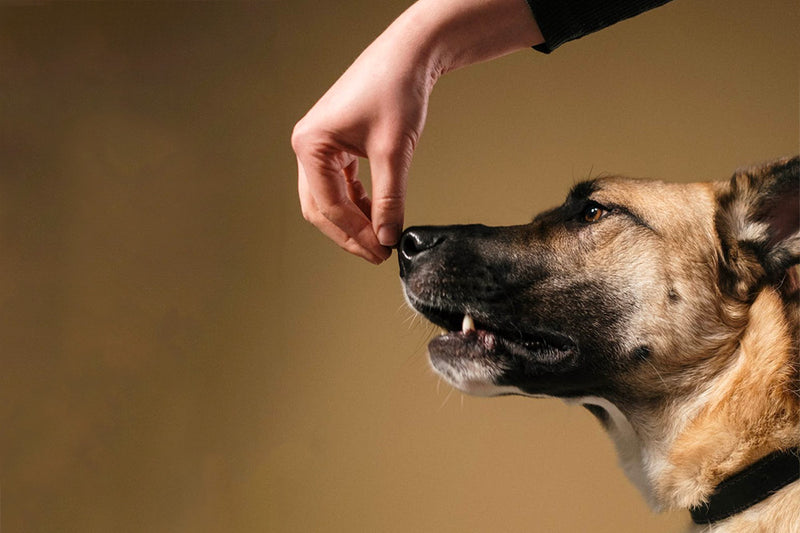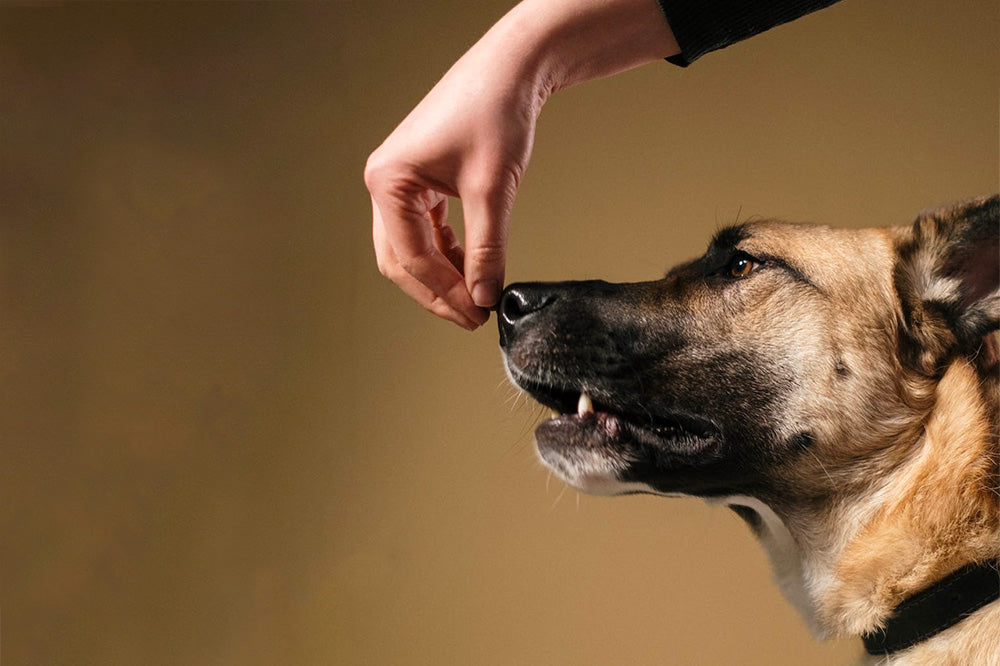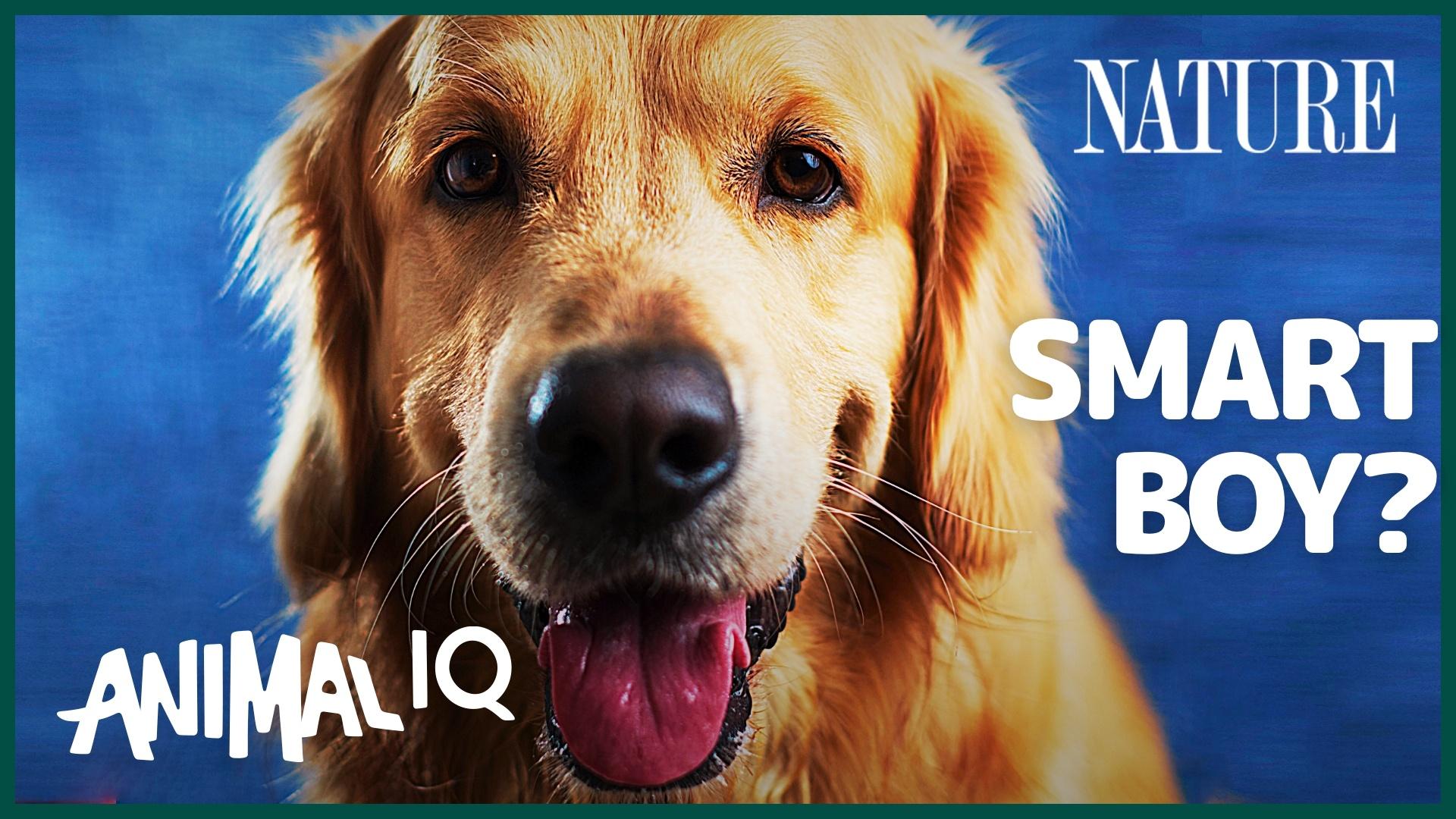Introduction

Dogs have long been known for their intelligence and ability to understand and communicate with humans. The concept of intelligence in dogs refers to their cognitive abilities, problem-solving skills, and trainability. Understanding how intelligent your pet is can help you better appreciate their capabilities and adapt your training methods accordingly. In order to measure intelligence in dogs, various tests and assessments have been developed. Some dog breeds are known for their high intelligence, such as the Border Collie and Poodle, while others possess medium or low levels of intelligence. Factors affecting a dog's intelligence include genetics and environmental factors such as training and socialization. Training plays a crucial role in enhancing a dog's intelligence by providing mental stimulation and promoting cognitive development. Building a strong bond with an intelligent dog involves understanding their communication signals and engaging in interactive play. Owning a highly intelligent dog has its challenges, but also comes with the benefits of having a clever and responsive companion. It is important to appreciate the unique intelligence of each dog breed and provide them with a nurturing environment to thrive.
The concept of intelligence in dogs

Intelligence in dogs refers to their ability to learn, process information, and solve problems. It encompasses various cognitive abilities like memory, reasoning, and problem-solving skills. Dogs demonstrate intelligence through their adaptability, trainability, and responsiveness to commands. While some dog breeds are known for their exceptional intelligence, it is important to understand that intelligence can vary among individual dogs within each breed. Intelligence in dogs is not solely determined by their IQ or academic abilities, but also by their emotional intelligence and understanding of human cues. Each dog has its own unique set of intellectual capabilities that make them special companions to humans.
How intelligence is measured in dogs

Intelligence in dogs is measured through a variety of tests and assessments that evaluate their ability to learn, problem-solve, and exhibit social behavior. One commonly used method is the "intelligence quotient" or IQ test, which assesses a dog's skills in areas such as obedience, memory, and problem-solving. Other tests may focus on specific tasks, such as navigating mazes or following commands. Additionally, researchers often observe how dogs interact with their environment and analyze their capacity for adaptability and learning. These measurements help categorize dogs into different intelligence levels, ranging from high to low, based on their cognitive abilities.
Breeds with High Intelligence

Breeds with high intelligence are known for their exceptional problem-solving abilities and quick learning skills. One such breed is the Border Collie. These dogs are natural problem solvers and excel in activities that require mental agility. They are highly trainable and have a strong desire to please their owners. Another breed known for their intelligence is the Poodle. They are quick learners with excellent memory, making them adept at various tasks and commands. Both Border Collies and Poodles thrive when given mentally stimulating activities and challenges that test their intelligence. To have a highly intelligent dog as a pet can be both fascinating and rewarding.
Border Collie: A natural problem solver

Border Collies are widely regarded as one of the most intelligent dog breeds. Their innate problem-solving abilities set them apart from other breeds. With their sharp minds and exceptional instincts, Border Collies excel in tasks that require problem-solving skills. These dogs have an incredible ability to analyze situations, think critically, and come up with creative solutions. Whether it's herding livestock or participating in obedience trials, Border Collies tackle challenges with enthusiasm and precision. Their natural problem-solving skills make them highly trainable and adept at learning complex commands and tasks. Owners of Border Collies often marvel at their dog's ability to anticipate their needs and find innovative ways to overcome obstacles.
Poodle: Quick learners with excellent memory
The Poodle is widely regarded as one of the most intelligent dog breeds. With their quick learning abilities and excellent memory, Poodles are often sought after for obedience training and performing tricks. Their intelligence allows them to learn commands and routines easily, making them a pleasure to train. Poodles also have fantastic problem-solving skills, which enables them to adapt quickly to new situations. Moreover, their excellent memory retention helps them remember commands and cues for a long time. This combination of intelligence and memory makes Poodles highly trainable and reliable companions. Whether it's agility training or complex tasks, Poodles excel in various activities thanks to their sharp minds and impressive cognitive abilities.
Breeds with Medium Intelligence

Breeds with medium intelligence possess a level of cognitive abilities that falls between highly intelligent and less intelligent breeds. One such breed is the Golden Retriever, known for being friendly and trainable. They excel in obedience training and are quick learners. Another breed with medium intelligence is the Labrador Retriever. These dogs are versatile and adaptable, making them suitable for various roles such as assistance dogs or search and rescue dogs. While they may not be as quick to solve complex problems as highly intelligent breeds, their trainability and friendly nature make them beloved companions for individuals and families alike.
Golden Retriever: Friendly and trainable

Golden Retrievers are widely known for their friendly and affectionate nature. They are incredibly social dogs, making them excellent companions for individuals and families alike. Their natural desire to please their owners makes them highly trainable and responsive to commands.
Golden Retrievers have a keen intelligence which allows them to quickly learn new tasks and commands. They excel in obedience training and are often used as service dogs or therapy dogs due to their gentle temperament and willingness to assist. Their trainability also extends to activities such as agility, tracking, and search and rescue work.
Not only are Golden Retrievers trainable, but they also have an innate desire to work alongside their human counterparts. Their eagerness to please combined with their intelligence makes them great candidates for various tasks and jobs.
Overall, Golden Retrievers stand out for their friendly demeanor and strong aptitude for learning. They make a wonderful addition to any home that is looking for a trainable and affectionate companion.
Labrador Retriever: Versatile and adaptable

The Labrador Retriever is a highly popular breed known for its versatility and adaptability. These intelligent dogs excel in various roles, making them a favorite choice for families, athletes, and working professionals. Labradors have a natural instinct for retrieving, making them exceptional hunting companions. Their friendly demeanor and patience also make them great therapy dogs. Additionally, Labradors are often used as search and rescue dogs due to their strong sense of smell and ability to navigate challenging terrains. They can easily adapt to different environments and lifestyles, whether it's a bustling city or a rural countryside. Labradors are eager to please their owners and thrive on mental stimulation, contributing to their overall intelligence and trainability.
Breeds with Low Intelligence

When it comes to breeds with low intelligence, two notable ones are the Bulldog and the Chow Chow. Bulldogs are known for their independent nature and stubbornness, which can sometimes make training a challenge. They may require more patience and persistence compared to other breeds. Similarly, Chow Chows are often described as reserved and aloof, which can make them less responsive to training efforts. However, it's important to remember that intelligence in dogs is not solely based on trainability. Each breed has its own unique traits and characteristics that make them special companions, regardless of their perceived intelligence level.
Bulldog: Independent and stubborn

The Bulldog breed is known for their independent nature and stubborn streak. These dogs have a strong sense of self and often prefer to do things their own way. Their independence can sometimes make training a challenge, as they might resist following commands or guidelines.
Additionally, Bulldogs can be quite stubborn in their decision-making. Once they have made up their minds about something, it can be difficult to change their behavior or mindset. This stubbornness is a trait that has been ingrained in the breed for generations.
Despite their independent and stubborn tendencies, Bulldogs are also loyal and affectionate companions. With consistency and patience, their training can be successful, but it requires an understanding of their unique personality traits.
Chow Chow: Reserved and aloof

The Chow Chow breed is known for its reserved and aloof nature. These dogs are not typically outgoing and affectionate towards strangers, often displaying a sense of independence. They have a strong sense of territory and can be wary of unfamiliar people or animals. Chow Chows tend to be more reserved than other breeds, requiring time and patience to build trust and establish a bond. However, once a bond is formed, they can be incredibly loyal and protective of their family. This reserved behavior is a characteristic of the breed and should be understood and respected by owners who choose to bring a Chow Chow into their homes.
Factors Affecting Intelligence

There are several factors that can influence the intelligence of dogs. One significant factor is genetics and inherited traits. Certain dog breeds are known for their intelligence due to their genetic makeup. For example, Border Collies are bred for their problem-solving abilities, while Poodles are selected for their quick learning and excellent memory.
Additionally, environmental factors and training play a crucial role in developing a dog's intelligence. Dogs that receive early socialization and obedience training tend to have better cognitive abilities. Engaging activities that provide mental stimulation also contribute to a dog's cognitive development.
By considering both genetics and environmental factors, owners can foster an environment that enhances their pet's intelligence and cognitive capabilities.
Genetics and inherited traits

Genetics play a significant role in determining the intelligence level of dogs. Certain breeds are genetically predisposed to higher levels of intelligence due to their lineage. They inherit traits from their ancestors that contribute to their ability to problem-solve, learn quickly, and display cognitive skills. Through selective breeding over generations, breeders have been able to accentuate these traits in specific breeds.
Inherited traits also affect a dog's intelligence. Dogs inherit genes from their parents that determine their cognitive abilities and temperament. Traits such as curiosity, attentiveness, and problem-solving skills can be passed down from one generation to another. However, it is important to note that while genetics provide a foundation for intelligence, environmental factors and training also play a crucial role in developing a dog's intelligence to its full potential.
Environmental factors and training

Environmental factors play a significant role in shaping a dog's intelligence. The environment in which a dog grows up can have a profound impact on their cognitive development. Exposure to various stimuli, social interactions, and enriched environments can all contribute to the enhancement of intelligence in dogs. Additionally, proper training and conditioning are essential for stimulating a dog's mental abilities. Training sessions that incorporate problem-solving tasks, obedience exercises, and interactive games can help dogs develop their cognitive skills and problem-solving abilities. By providing a stimulating and nurturing environment combined with effective training methods, owners can help maximize their dog's intelligence potential.
The Role of Training in Enhancing Intelligence

Training plays a crucial role in enhancing the intelligence of dogs. Through training, dogs can develop problem-solving skills, improve their memory and cognitive abilities, and become more adaptable to different situations. Early socialization and obedience training are particularly important in shaping a dog's intelligence. Socialization helps dogs learn how to interact with other animals and people, while obedience training teaches them basic commands and discipline. Engaging activities such as puzzle toys, agility training, and scent work provide mental stimulation and promote cognitive development. By consistently providing structured training and engaging activities, dog owners can help unlock their pet's full potential intelligence.
The importance of early socialization and obedience training

Early socialization and obedience training play a crucial role in shaping a dog's intelligence. By exposing them to various people, animals, and environments at a young age, dogs develop better social skills, confidence, and adaptability. This helps them navigate different situations and interact positively with unfamiliar stimuli. Additionally, obedience training fosters discipline, teaches basic commands, and promotes good behavior. Dogs that receive early socialization and obedience training tend to be more well-rounded, obedient, and responsive to their owners' commands. It is essential for owners to prioritize these aspects of training to ensure their dog's intellectual development and overall well-being.
Engaging activities for mental stimulation and cognitive development

Engaging activities for mental stimulation and cognitive development are essential for dogs with high intelligence. These activities help keep their minds sharp and prevent boredom. Puzzle toys, such as treat-dispensing toys or interactive feeders, can challenge their problem-solving skills. Training sessions that involve learning new commands or tricks can also provide mental stimulation while strengthening the bond between you and your pet. Engaging in scent work or hide-and-seek games can tap into a dog's natural instincts and encourage their cognitive abilities. Regular playdates with other dogs can also provide socialization opportunities, promoting mental growth and cognitive development. It is important to tailor these activities to your dog's individual interests and abilities for maximum engagement and learning.
Bonding and Communication with Intelligent Dogs

Building a strong bond with an intelligent dog is crucial for effective communication and a harmonious relationship. Understanding your dog's communication signals is key to successful interaction. Intelligent dogs often exhibit subtle body language cues such as tail wagging, ear positioning, and eye contact that convey their emotions and intentions. Paying attention to these signals allows you to respond appropriately and establish trust.
To strengthen the bond, interactive play is highly recommended. Engaging in activities that challenge their minds, such as puzzle toys or obedience training, can stimulate their intelligence and foster a deeper connection with their owners. Regular exercise is also important as it provides an opportunity for quality bonding time while keeping their active minds engaged.
Intelligent dogs thrive in environments where they receive mental stimulation and have meaningful tasks to complete. Providing them with opportunities to problem solve and learn new skills not only enhances their intelligence but also strengthens the bond between canine and human.
By investing time and effort into understanding your intelligent dog's needs, preferences, and unique ways of communicating, you can forge a strong bond that will benefit both of you in numerous ways.
Understanding your dog's communication signals

Understanding your dog's communication signals is crucial in developing a strong bond with your intelligent pet. Dogs communicate through various body language signals, vocalizations, and facial expressions. For example, a wagging tail usually indicates happiness or excitement, while a lowered head signals submission or fear. Understanding these signals allows you to interpret your dog's emotions and needs accurately.
Additionally, paying attention to your dog's vocalizations, such as barking, growling, or whimpering, can provide insights into their communication. Each dog may have their unique way of expressing themselves. By learning to interpret and respond appropriately to these signals, you can establish effective communication with your intelligent companion and strengthen your connection with them.
Building a strong bond through interactive play

Building a strong bond with your highly intelligent dog can be achieved through interactive play. Engaging in activities that stimulate your dog's mind and allow for interaction helps foster a deeper connection between you and your pet. Playing games such as fetch, hide-and-seek, or puzzle toys not only provide mental stimulation for your dog but also offer opportunities for you to communicate and bond with them.
During interactive play, you can observe your dog's behavior, body language, and preferences, which further strengthens the understanding between you both. This shared experience enhances the trust and communication between you and your highly intelligent dog, leading to a more fulfilling and enjoyable relationship.
Challenges and Benefits of Owning a Highly Intelligent Dog

Highly intelligent dogs can bring both challenges and benefits to their owners. On the one hand, their intelligence can sometimes lead to behavioral problems if not properly channeled. They may become bored easily and engage in destructive behaviors or develop bad habits. In addition, their quick learning abilities mean that they may pick up on undesirable behaviors just as quickly as desirable ones.
However, owning a highly intelligent dog can also have numerous benefits. These dogs are often fast learners, making them easier to train and teach new tricks. They thrive on mental stimulation and enjoy engaging activities, which can provide hours of entertainment for both the dog and its owner. Furthermore, their intelligence allows for better communication between the dog and its owner, fostering a strong bond and mutual understanding.
Overall, owning a highly intelligent dog requires patience and dedication to ensure that their intelligence is directed towards positive behaviors. The challenges can be overcome through proper training and providing outlets for mental stimulation, while the benefits of having a clever and responsive companion make it all worthwhile.
Dealing with potential behavior problems

Dealing with potential behavior problems can be a challenge when owning a highly intelligent dog. These dogs are often quick to learn and may exhibit certain behaviors that can be problematic if not properly managed. For example, border collies, known for their problem-solving abilities, may become bored and engage in destructive behaviors if not given enough mental stimulation. Likewise, bulldogs, with their independent nature, may display stubbornness and resistance towards training. It is important for owners of intelligent dogs to provide them with adequate mental and physical exercise, as well as consistent training and boundaries to prevent or address any behavioral issues that may arise.
Enjoying the benefits of a clever and responsive companion

Owning a highly intelligent dog comes with numerous benefits and rewards. Whether it's a Border Collie or a Poodle, these clever and responsive companions bring joy and fulfillment to their owners' lives. Their high intelligence allows them to quickly learn commands, tricks, and even complex tasks. This makes them ideal candidates for various activities such as agility training, obedience competitions, and even therapy work.
The bond between an owner and a highly intelligent dog is often deep and strong. These dogs are known for their loyalty and constant desire to please their humans. They thrive on mental stimulation and engaging in interactive play with their owners, making them excellent companions for people who enjoy participating in mentally challenging exercises.
In addition to their impressive learning abilities, intelligent dogs also have the capacity to understand their owners' emotions and respond accordingly. They can provide emotional support during challenging times and bring comfort simply through their presence. This heightened awareness of their owner's needs strengthens the bond between them, creating an unbreakable connection.
Having a clever and responsive companion can also enhance the overall quality of life. Intelligent dogs tend to be more adaptable in various environments, which makes traveling or moving easier for both the owner and the pet. Their ability to problem-solve allows them to navigate new situations with ease, reducing stress levels for both parties involved.
It is important to note that owning a highly intelligent dog requires dedication, patience, and consistency in training. While they excel at learning new things quickly, they also have a knack for finding ways around rules if not given proper guidance. However, investing time and effort into training these dogs is well worth it when you consider the many benefits they bring into your life.
Overall, enjoying the benefits of having a clever and responsive companion means appreciating their unique abilities, nurturing their intelligence through engaging activities, fostering a strong bond through communication, and reaping the rewards of having an exceptional furry friend by your side every step of the way.
Conclusion

In conclusion, the intelligence of dogs is a fascinating and varied trait that differs across different breeds. Through the measurement of intelligence and observation of certain breeds, it becomes evident that some dogs possess high levels of intelligence while others exhibit more moderate or lower levels. Factors such as genetics and environment play a significant role in determining a dog's intelligence. Training also plays a crucial role in enhancing their cognitive abilities and fostering a strong bond between dogs and their owners. While owning highly intelligent dogs may come with challenges, the benefits of having a clever and responsive companion are immeasurable. It is important to appreciate the unique intelligence of each dog breed and provide them with a nurturing and stimulating environment to thrive.
Appreciating the unique intelligence of each dog breed

The intelligence of dogs varies greatly between breeds, and it's important to appreciate and understand the unique abilities of each breed. Border Collies are known for their problem-solving skills and herding instincts, making them highly intelligent working dogs. Poodles, on the other hand, are quick learners with excellent memory, often excelling in obedience training and dog sports.
Golden Retrievers have a friendly nature and are easily trainable, making them versatile companions in various activities. Labrador Retrievers are adaptable and excel in different roles such as guide dogs or search and rescue dogs.
Bulldogs may have lower intelligence compared to other breeds, but they are independent thinkers with a stubborn streak. Chow Chows, known for their reserved and aloof nature, may not be as quick to learn new commands but possess an innate intelligence rooted in their ancient history.
It's important to appreciate the unique characteristics and abilities of each breed when considering their intelligence. Each breed has its own strengths and weaknesses when it comes to problem-solving, learning new tasks, and forming bonds with humans. Understanding these differences helps foster a better relationship with our furry companions.
Foster a nurturing and stimulating environment for your pet

Creating a nurturing and stimulating environment for your pet is crucial to their overall well-being and intelligence development. Dogs thrive when they feel loved, safe, and engaged with their surroundings. Providing them with regular exercise, mental stimulation, and socialization opportunities promotes cognitive growth. This can be achieved through interactive toys, puzzle games, and training sessions that challenge their problem-solving skills. Additionally, establishing a consistent routine and offering positive reinforcement will help them feel secure and confident. Remember to shower them with affection and spend quality time together to build a strong bond. By fostering such an environment, you are nurturing your pet's intelligence and enhancing their overall happiness.




0 Comments